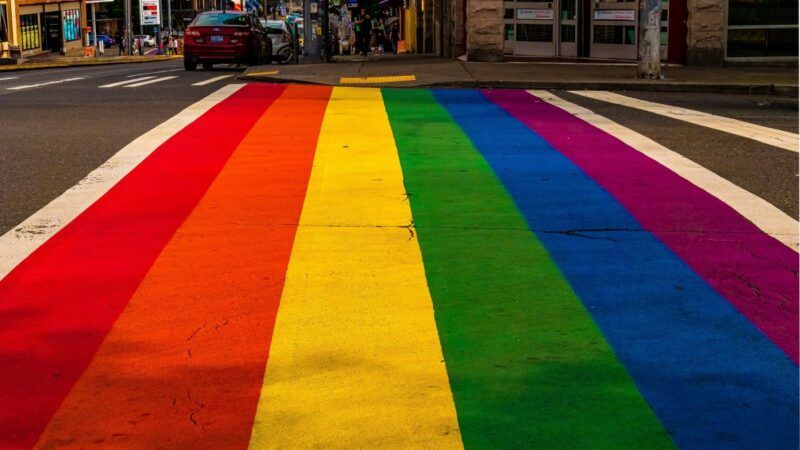Arizona Lawmakers Seek Religious Compromise in LGBT Antidiscrimination Bill
H.B. 2802 would expand discrimination protections but would carve out religious institutions.

A new bill in Arizona would outlaw some discrimination against gay and transgender people, but includes an important compromise that would exempt churches and religious organizations.
The bill, H.B. 2802, introduced by Rep. Amish Shah (D–Phoenix) and House Speaker Rusty Bowers (R–Mesa) would extend housing and public accommodations discrimination protections to gay and transgender people. Places of worship, religious schools, and food preparation facilities supervised by religious leaders to comply with various dietary requirements are exempt.
The bill also bans conversion therapy for minors to attempt to "cure" them of being gay or trans, but only covers licensed health providers and specifically exempts members of the clergy and parents.
The proposal is similar to a bill passed in Utah in 2015 often referred to as the "Utah Compromise." Leaders of the Church of Jesus Christ of Latter-day Saints publicly supported the bill and helped pass it.
It's also similar to a federal bill called the "Fairness for All Act" that would expand federal anti-discrimination laws to include gays and transgender while still carving out exemptions for churches and people with strongly held religious beliefs.
"This historic measure is the product of years of thoughtful dialogue between leading Arizona LGBTQ organizations, business leaders and communities of faith to support a bill aimed at updating the state's non-discrimination law while also preserving religious freedom," notes a press release by Equality Arizona, an LGBT political nonprofit group that supports the bill. Similar compromise anti-discrimination ordinances have been passed in Arizona cities like Mesa and Scottsdale.
The state of popular culture today, however, is not one of compromise. The Deseret News in 2020 noted that other states had not followed Utah's lead to attempt to add LGBT folks to existing discrimination laws while protecting a certain level of religious liberty. The Fairness for All Act has gotten nowhere federally as Democrats have lined up behind the Equality Act, a much more expansive (and divisive) law that would restrict exemptions for religious citizens and institutions.
Meanwhile, in some red state legislatures, a full LGBT backlash is underway. Florida's Republican Gov. Ron DeSantis has declared support for a bill that would significantly censor how educators are allowed to even discuss LGBT issues in schools (and also, incidentally, gives parents and lawyers an avenue to file nuisance suits to try cash in on the culture war).
The decision by Shah and Bowers to team up for a compromise is worth noting, even though H.B. 2802 is still very much a "bake them the wedding cake" bill that does not offer exemptions for small business owners who may have religious objections to providing goods and services for gay weddings. And because the Supreme Court declined to actually decide whether the act of making a wedding cake counts as speech under the First Amendment—and thus whether public accommodation law compels firing up the oven—expect to see more compromises that allow some people to opt out of anti-discrimination, but not others, even when both groups seek exemptions for the exact same reason.


Show Comments (48)